Froome repeats history with Vuelta a Espana stage win
Victory on Peña Cabarga duplicates 2011 breakthrough
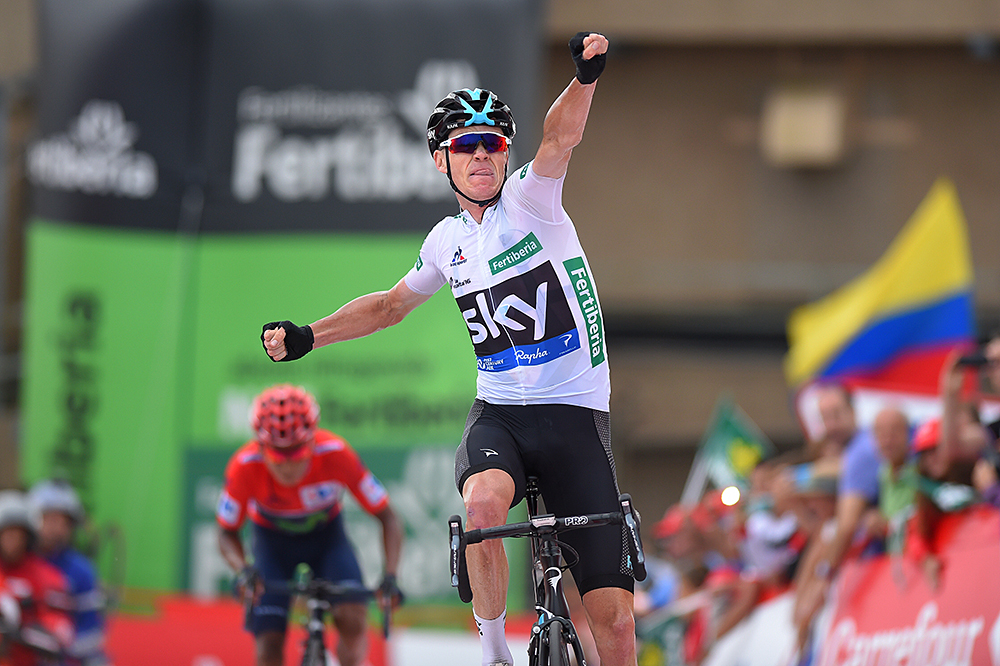
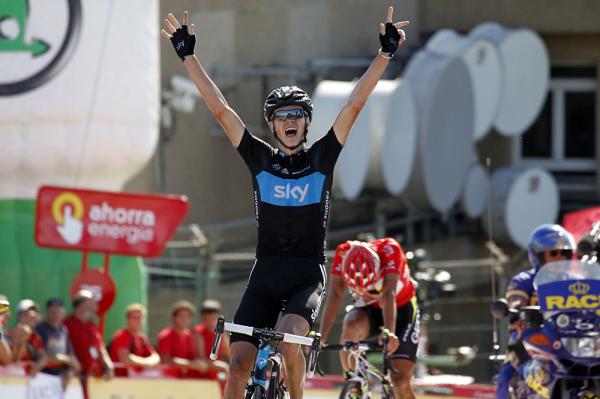
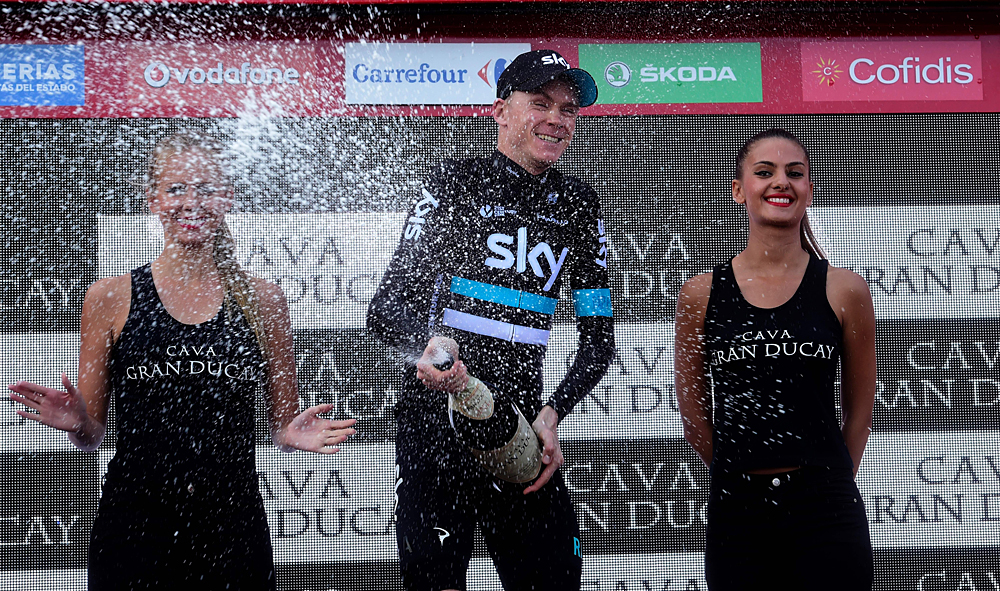
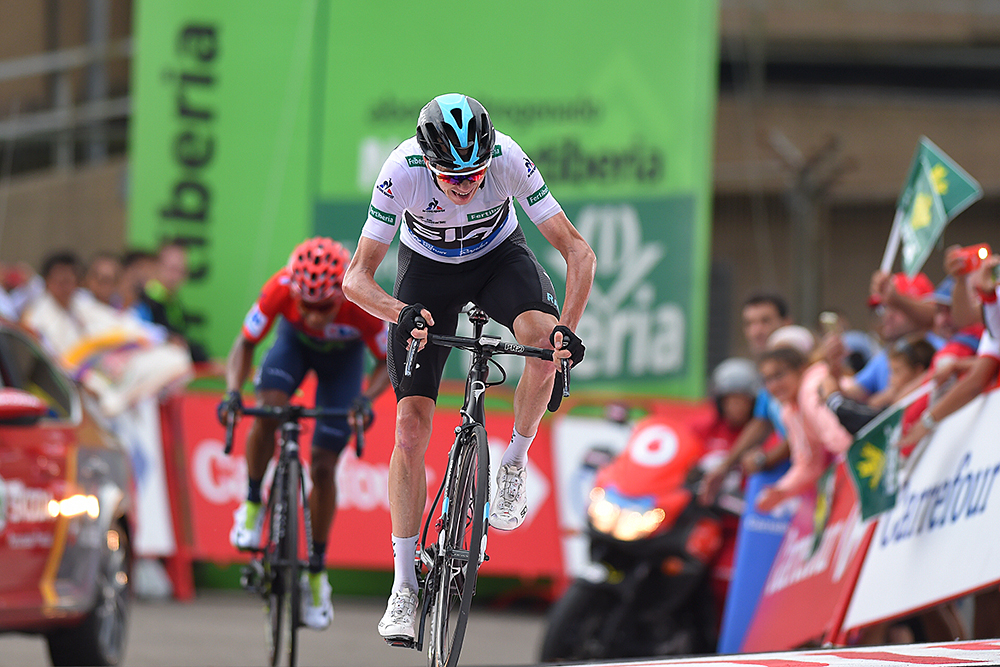
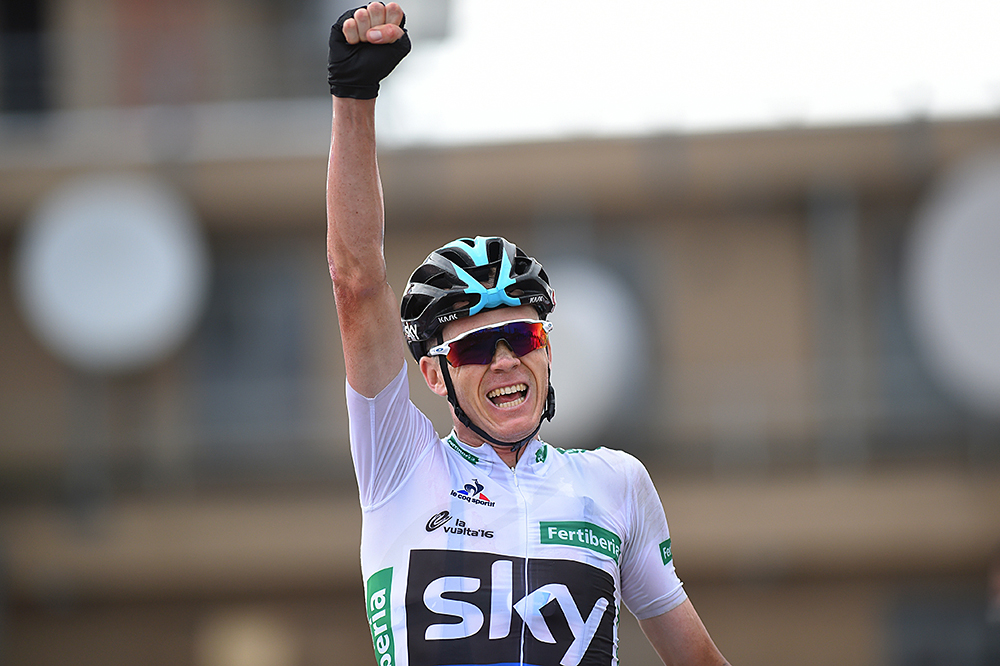
For the second time in five years, Chris Froome has triumphed in the ascent to Peña Cabarga in the Vuelta a España, with a victory that once again saw the Briton beat the overall leader into second place in a thrilling uphill duel.
In 2011, victory on the four kilometre climb represented a breakthrough triumph for Froome, and confirmed his position on the Vuelta's final podium behind then-leader Juan Jose Cobo in Madrid. This time it was Nairo Quintana who could not hold Froome's wheel as the finish line approached.
"Of course I've got some special memories from 2011 at the Vuelta against Cobo at that time, it was my first victory as a professional, ever, so it's definitely special for me," Froome said. "Today is another day and I can add to that now."
Quintana attempted to drop Froome, but finally was unable to stop the Briton from taking his first individual stage win in the Vuelta since his 2011 victory on Peña Cabarga. It will be a big boost to Froome's confidence and his team's collective morale.
Froome and Quintana look set to be locked into battle for another 10 days. Whether Froome's clearly rising form will be enough to topple Quintana remains to be seen, although the margins are now just 54 seconds between the two on the general classification.
The victory continues Sky's unbroken run of triumphs on the Peña Cabarga, after Froome won in 2011, Vasil Kiryenka in 2013 and now Froome again in 2016.
Froome had strong support from his teammates, notably David Lopez, Pete Kennaugh and finally Leopold Konig - who has moved into sixth overall - in the closing kilometres. But ultimately Froome's previous individual experience on the climb proved crucial to racing to his first Grand Tour summit stage win since the Pierre de Saint-Martin in the 2015 Tour.
The latest race content, interviews, features, reviews and expert buying guides, direct to your inbox!
"I knew the climb well, so that definitely helped, and coming into the last few hundred metres before the finish, knowing the left turn, you can't see the finish line, but I knew the right moment to accelerate," he explained.
Asked how he compared his racing style on the shorter, much steeper climb to the Lagos de Covadonga on Monday, Froome said, "it was a different approach and I decided to ride at Covadonga in a different way at a pace that suited me the best. At Covadonga I've always exploded half way up [on previous ascents in 2012 and 2014], so this time I paced myself a lot better.
"Today was a very different climb, so it was about staying right at the front, following Nairo when he made his move.
"It was definitely my objective coming into this race to try and ride myself into it, I've had a busy season, a Tour de France then the Olympics and not much time to prepare specifically for the Vuelta. Because of that I've been aiming to be better in the second half, and hopefully I'm on track for that now."
He denied that if he was so close to Quintana that it was up to Sky and Movistar to share responsibility for controlling the race, as Movistar manager Eusebio Unzue had suggested. "They have the lead, Valverde is in third place, it's not for us to control it. It's their responsibility."
Froome acknowledged once more that Quintana is a formidable rival, but, he felt, that only made for a more spectacular event.
"Quintana is really strong at the moment. He has the leader's jersey and I'm just trying to do as much as I can day by day to get closer to him. I want as much time as I can get, he wants as much time as he can get and that makes the race exciting."
Alasdair Fotheringham has been reporting on cycling since 1991. He has covered every Tour de France since 1992 bar one, as well as numerous other bike races of all shapes and sizes, ranging from the Olympic Games in 2008 to the now sadly defunct Subida a Urkiola hill climb in Spain. As well as working for Cyclingnews, he has also written for The Independent, The Guardian, ProCycling, The Express and Reuters.
